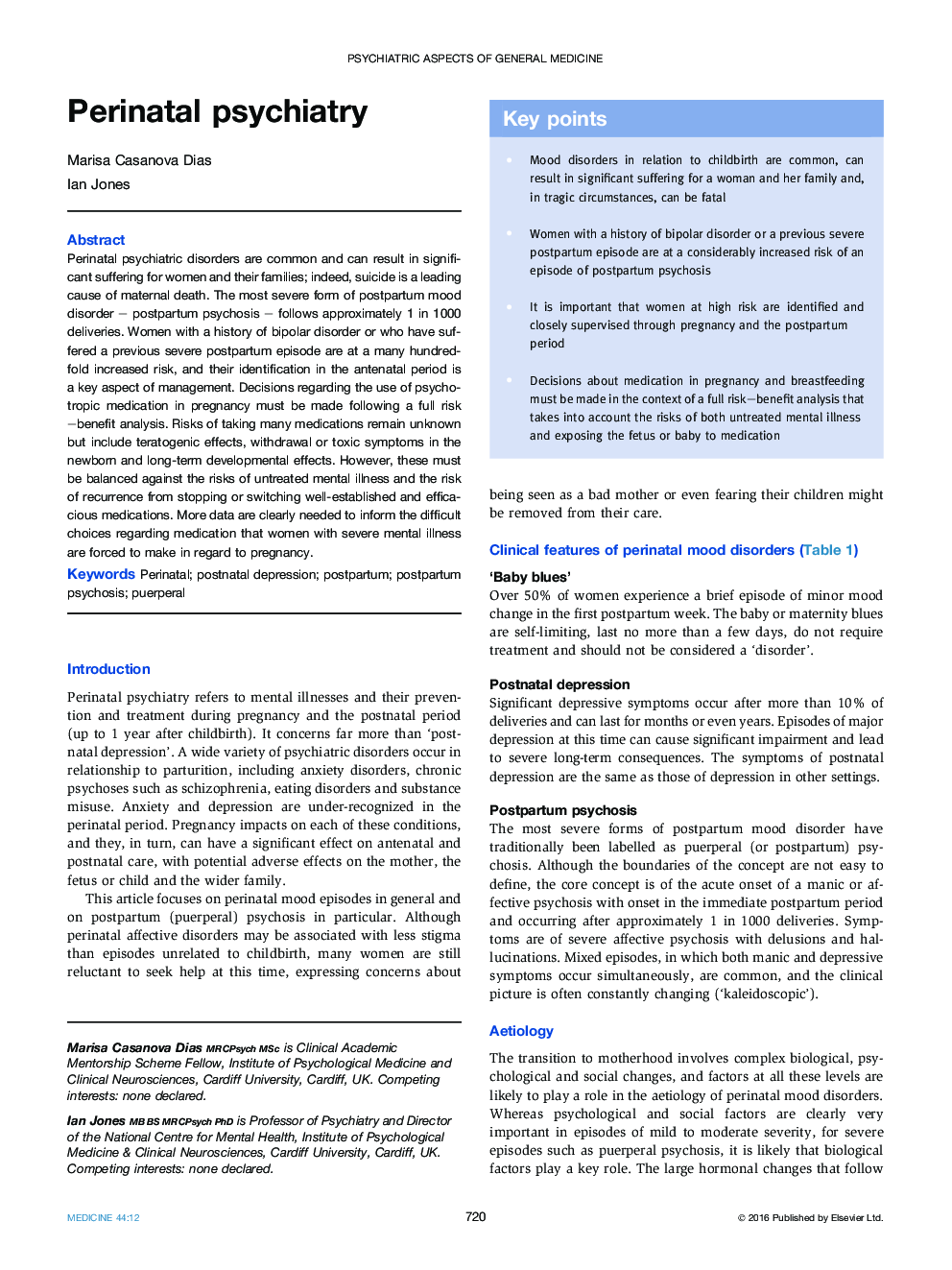| Article ID | Journal | Published Year | Pages | File Type |
|---|---|---|---|---|
| 5681236 | Medicine | 2016 | 4 Pages |
Abstract
Perinatal psychiatric disorders are common and can result in significant suffering for women and their families; indeed, suicide is a leading cause of maternal death. The most severe form of postpartum mood disorder - postpartum psychosis - follows approximately 1 in 1000 deliveries. Women with a history of bipolar disorder or who have suffered a previous severe postpartum episode are at a many hundred-fold increased risk, and their identification in the antenatal period is a key aspect of management. Decisions regarding the use of psychotropic medication in pregnancy must be made following a full risk-benefit analysis. Risks of taking many medications remain unknown but include teratogenic effects, withdrawal or toxic symptoms in the newborn and long-term developmental effects. However, these must be balanced against the risks of untreated mental illness and the risk of recurrence from stopping or switching well-established and efficacious medications. More data are clearly needed to inform the difficult choices regarding medication that women with severe mental illness are forced to make in regard to pregnancy.
Related Topics
Health Sciences
Medicine and Dentistry
Medicine and Dentistry (General)
Authors
Marisa Casanova Dias, Ian Jones,
